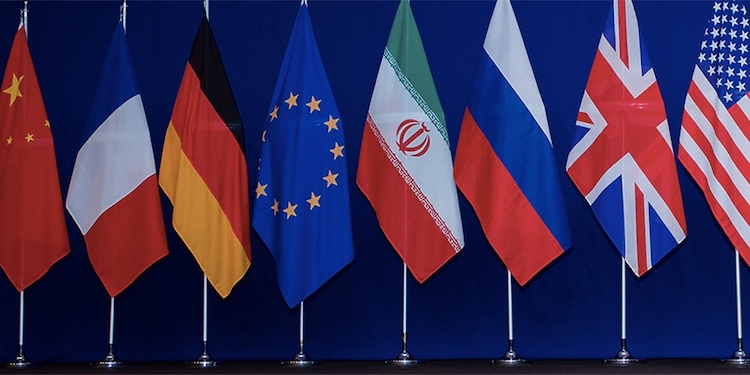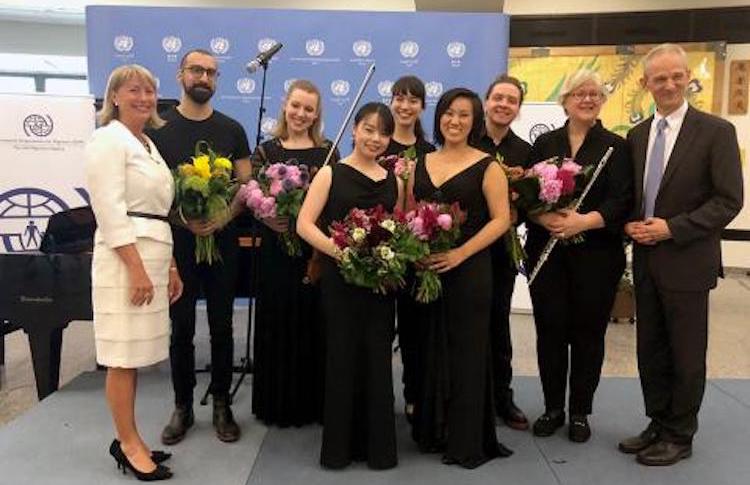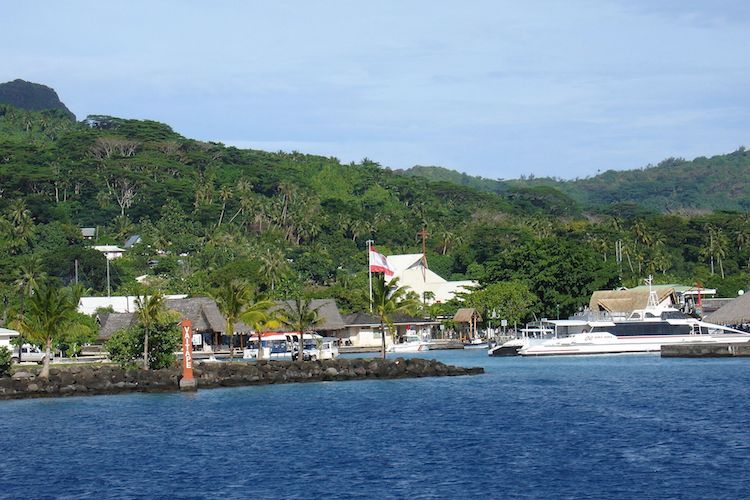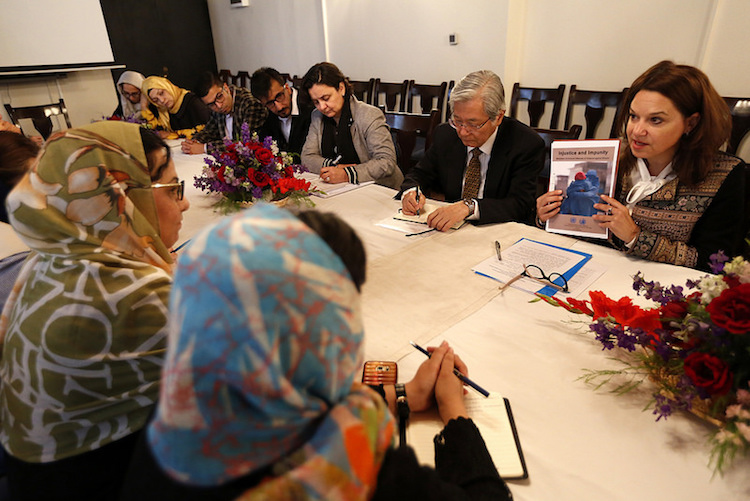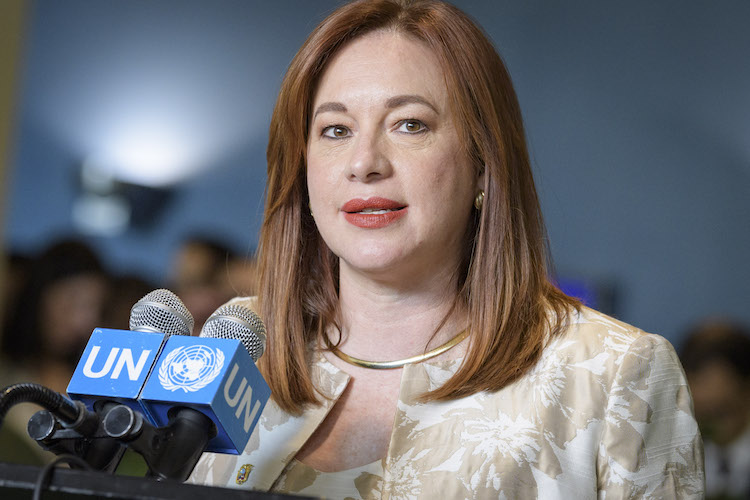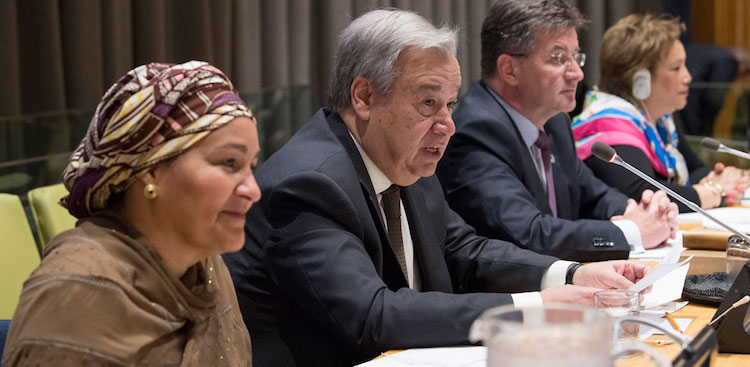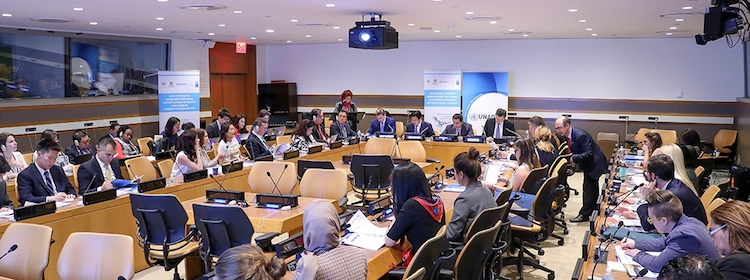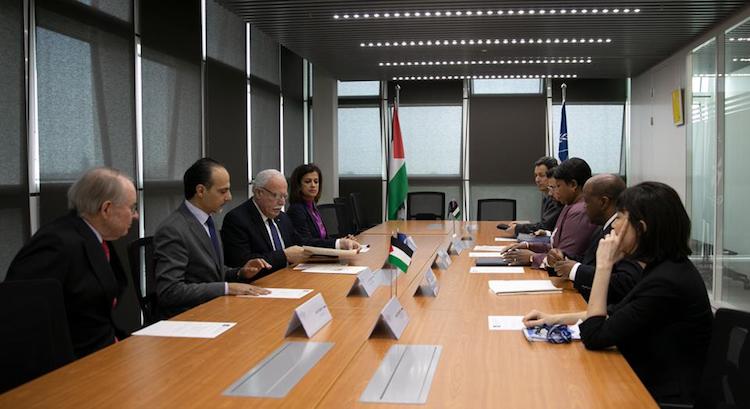By Fabiola Ortiz OSLO (IDN) – It has been a decade now that the mechanism for reducing emissions from deforestation and forest degradation – known as REDD+ – has been included in climate negotiations, however investments have not been sufficient for bringing them down. “Even though science tells us that forests represent thirty percent of […]
UN Chief Favours Implementation of Iran Nuclear Deal
By Kelsey Davenport The author is director for nonproliferation policy at the Arms Control Association (ACA). This article was part of the ACA’s Newsletter of June 29, 2018. WASHINGTON, D.C. (IDN-INPS) – UN Secretary-General Antonio Guterres said the nuclear deal with Iran is at a “crossroads” and expressed his deep regret over U.S. President Donald […]
UN in Vienna Stages World Premieres by Migrant Composers
By Reinhardt Jacobsen VIENNA (IDN) – The first-ever musical event of its kind at the United Nations in Vienna has showcased the richness of culture and art that migration brings. Co-hosted by the UN migration agency (IOM) and the United Nations Information Service (UNIS), the ‘Voices of Migration’ concert at the Vienna International Centre on […]
UN Warned Against Taking a Case-by-Case Approach to Self-Determination
By Kwame Buist NEW YORK (IDN) – A case-by-case approach to the issue of the world’s remaining ‘non-self governing territories’ must not be misinterpreted as a rationale for legitimising the political and economic inequality of dependency status, the recently concluded session of the UN Special Committee on Decolonisation was told. The committee concluded its 2018 […]
Argentina Reiterates Validity of Claims to Falklands/Malvinas Islands
By Kwame Buist NEW YORK (IDN) – The UN Special Committee on Decolonisation has approved a draft resolution calling for a peaceful and negotiated settlement of the dispute between Argentina and the United Kingdom concerning sovereignty over the Falkland/Malvinas Islands as the only way to end the “special and particular” colonial situation of the islands. […]
UN Report Faults Access to Justice of Afghan Women
By Devinder Kumar NEW DELHI | KABUL (IDN) – Though a law on the elimination of violence against women has been in place in Afghanistan since 2009, Afghan women’s access to justice remains severely inadequate, says a new report released by the UN Assistance Mission in Afghanistan (UNAMA). Entitled Injustice and Impunity: Mediation of Criminal […]
UN General Assembly Elects Fourth Woman As President In More Than Seven Decades
By J Nastranis NEW YORK (IDN) – In its more than seven-decades-long history, the UN General Assembly has elected only the fourth woman to helm the 193-member organ. Ecuador’s María Fernanda Espinosa Garcés, a former Minister for National Defence, is President of the 73rd session of the General Assembly, which opens on September 18. Her […]
Sustainable Development Now at the Heart of the UN
By J Nastranis NEW YORK (IDN) – The United Nations General Assembly has approved a landmark consensus resolution, which Deputy Secretary-General Amina Mohammed assures will allow the world body to transform a “cacophony” of efforts under way to make sustainable development a reality into a “symphony”. Secretary-General António Guterres has described the plan as “the […]
Global Citizenship Education Vital For Intercultural Literacy
By Santo D. Banerjee UNITED NATIONS (IDN) – Educating younger generations on global citizenship through intercultural literacy is a serious civic educational and moral issue, said Nassir Abdulaziz Al-Nasser, High Representative of the United Nations Alliance of Civilizations (UNAOC) in his opening remarks at an event co-organized with the United Nations Academic Impact (UNAI) member […]
Palestine Seeking Statehood Through UN System Organizations
By Ramesh Jaura BERLIN | NEW YORK (IDN) – While the two-state solution envisaging an independent State of Palestine appears to be increasingly consigned to oblivion, the Palestinian Authority is resolutely pursuing its strategy of seeking statehood through intergovernmental organizations that are a part of the UN system. The latest in a series of such […]


